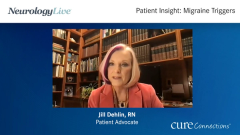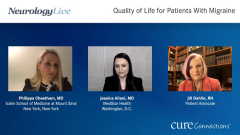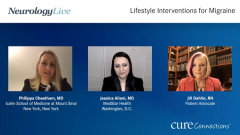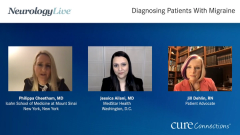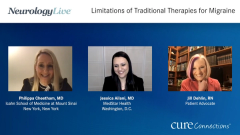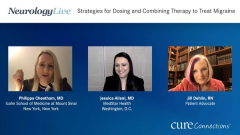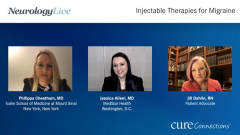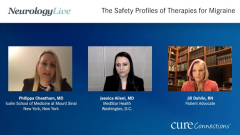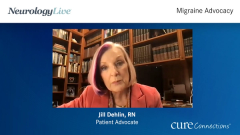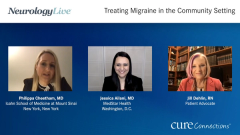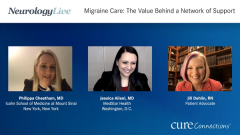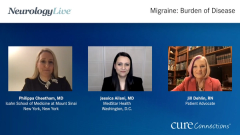
Patient Insight: Migraine Triggers
Episodes in this series

Philippa Cheetham, MD, and Jill Dehlin, RN, describe what types of triggers seem to be associated with their migraine attacks and explain what they do to try to prevent or reduce the severity of migraines.
Philippa Cheetham, MD: I am going to come back to you in a minute, Dr Ailani. We have touched already on the possible hormonal etiology. Jill, I would love to bring you into the conversation, also listening to Dr Ailani. For me, some of the big warning signs that a migraine is coming is what I call “cerebral irritability.” I just feel very agitated about something, more than I would normally. I know that for me, the strip lights and the fluorescent lighting in 1 of my offices is a guarantee trigger to bring that migraine on. Do you find that there are very specific triggers? When a migraine comes on, do you say, “I knew that was a trigger, but I let it go. Perhaps I did not eat at the right time or avoid the obvious triggers.” What are the triggers for your migraines?
Jill Dehlin, RN: Just to circle back a little to what you were saying earlier about hormones, I became chronic when I was going through menopause, so there is a connection. I do have some guaranteed triggers. Bright light is 1 of them. I went to the dentist today, and then guess what? I had a migraine. Loud noises and stress are sometimes a trigger for me. I get word-finding problems when I have a migraine, and it is really frustrating. I will also experience nausea; sometimes I will vomit, which is 1 of the world’s worst things to do when you have a screaming head pain and a migraine attack. I get dizzy, and I get visual snow. I have—I am thinking for the words; just a second, bear with me—dizziness, nausea, and vomiting.
Philippa Cheetham, MD: It is funny that you were mentioning the feeling of nausea and vomiting coming on. I also experience the opposite. I know when my migraine is going to alleviate because suddenly I’ll feel like my stomach is emptying properly again. I’m very aware of that bloated feeling resolving and my appetite returning. That relief is a signal to me that the tide is on its way out.
We are so dependent on technology—on iPhone screens, on the internet—and everything is so visual with the computer screen. Do you find that that is also a trigger for you—that if you have a day that is very much dependent on electronic devices and there is potentially a lack of natural light, does that often associate with a trigger for you?
Jill Dehlin, RN: I am a lot like you in that the fluorescent lights are a guaranteed trigger for me. I find that spending too much time with close work—it doesn’t matter if I am on a screen, watching television, reading a book, reading articles, sewing—too much concentrated effort, visually will bring on the visual disturbances and blurred vision, or double vision.
Philippa Cheetham, MD: When you get that warning sign, Jill, that it is on its way, what are the first few things you do to try to abort or reduce the severity of an attack?
Jill Dehlin, RN: I have had migraine disease since I was 30, so it has evolved over the years. What I do right now—I can’t take NSAIDs [nonsteroidal anti-inflammatory drugs] because I’m on a blood thinner—is I’m on a gepant; that’s what I do first. I take my gepant as soon as I can, and like you, sometimes I’m in a spot where I do not have my acute medicine, so you just have to do the best you can. Sometimes a Tylenol [acetaminophen] will help a little just to take it down a notch, but I found that I have to be careful with Tylenol [acetaminophen]. I’ve gotten myself into trouble with medication-overuse headache, using Tylenol [acetaminophen] postsurgically.
Philippa Cheetham, MD: Thank you for watching Neurology Live® Cure Connections®. If you enjoyed the program, please subscribe to our e-newsletter to receive upcoming programs and other great content right in your in-box. Thank you so much.
Transcript Edited for Clarity
Newsletter
Keep your finger on the pulse of neurology—subscribe to NeurologyLive for expert interviews, new data, and breakthrough treatment updates.


